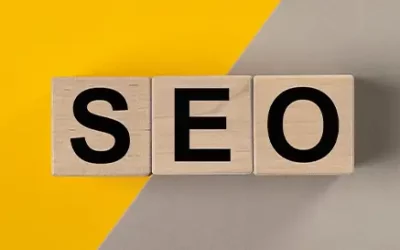The search landscape has always been evolving, but nothing has disrupted it as quickly and drastically as artificial intelligence (AI). Nearly every business that relies on SEO as a growth channel is adjusting its strategies to keep pace with these changes. The role of SEO is no longer just about keywords and backlinks, it’s about understanding how search engines and users are adapting in an AI-first world. Keeping an eye on the latest SEO trends has become essential for staying ahead. For companies outsourcing digital marketing services, keeping an eye on the latest SEO trends has become essential for staying ahead.
Over the next two years, the focus of SEO will increasingly shift toward user experience, relevance, and trust. Businesses, marketers, and publishers that learn to adapt quickly will be the ones who continue to thrive.
Major SEO Trends to Expect
Here’s a deep dive into the most important SEO trends you need to watch, and prepare for the upcoming years
- AI Overviews Will Reshape the Search Experience: One of the most significant search engine optimization trends is Google’s rollout of AI Overviews (formerly known as the Search Generative Experience). These AI-powered summaries appear at the very top of search results and function like a built-in chatbot response, giving users direct, synthesized answers without requiring them to click through multiple websites.
While this improves user experience by offering quick, digestible information, it has raised an important concern: will AI Overviews reduce website traffic by lowering click-through rates (CTR)?
Early studies show a potential drop of 18–64% in organic clicks on queries where AI Overviews appear. For context, the average CTR for the #1 organic result is 27.6%, and the top three results capture more than half of all clicks. If users get answers directly on the results page, fewer may click through to websites.
Currently, AI Overviews are present in about 15% of search results, but that number is expected to rise significantly. Publishers and SEO professionals will need to adapt by optimizing their content so that it can be featured within AI Overviews, not just in traditional blue links.
History shows us that these shifts are not necessarily catastrophic. When mobile search became dominant, publishers worried that fewer clicks would mean less traffic, yet overall search volume increased. Similarly, when Google launched featured snippets, many feared click loss, but it became just another optimization opportunity. The same principle applies now: we’re entering the era of Generative Engine Optimization (GEO), where the goal is to create content that search engines can confidently include in AI-generated summaries. Businesses that adapt to this change won’t just survive, they’ll thrive with future SEO strategies for content creators who want visibility in a competitive AI-first environment.
- Large Language Models (LLMs) Will Capture More Market Share: For the first time since 2015, Google’s market share has dipped below 90%—a signal that users are increasingly turning to alternatives such as ChatGPT, Claude AI, and Perplexity AI for information retrieval.
Why? Because LLMs offer advantages traditional search engines struggle to match:
- Conversational search: Users can ask questions in natural language and receive contextual answers.
- Direct responses: Instead of sorting through multiple web pages, people get quick, synthesized insights.
- Multitasking: Beyond search, LLMs can write, code, analyze data, and even generate creative ideas.
Google’s move toward AI Overviews is, in part, a response to this trend. But the ad-free, conversational nature of LLM platforms gives them a competitive edge. Within the next three years, LLM-driven search could take a significant chunk of traffic away from Google.
For businesses, this means SEO strategy needs to expand beyond Google. Consider how your brand can show up in AI-powered ecosystems—whether through optimized long-form content, structured data, or becoming a recognized source that AI models trust and cite. This shift is one of the SEO trends that will impact businesses most directly, forcing marketers to diversify their visibility strategies.
- User-Generated Content (UGC) Will Gain More Weight in Rankings: Authenticity is becoming the new currency of trust in the digital world. As AI-generated content floods the internet, people increasingly want insights that feel real, personal, and human. This is why user-generated content (UGC)—reviews, testimonials, forum posts, and social media discussions—is growing in importance for SEO.
Research suggests that by 2030, UGC will account for 80% of SEO-enhancing content. Platforms like Reddit and Quora are already benefiting from this shift. Their communities thrive on authentic voices and real experiences, which aligns perfectly with Google’s focus on relevance and user intent.
For businesses, this means encouraging UGC isn’t just about social proof—it’s a powerful SEO strategy. Featuring authentic customer stories, fostering community-driven discussions, and engaging with niche forums can help your brand’s content rank better while building deeper trust with audiences.
- AI Tools Will Revolutionize SEO Workflows :The integration of AI in SEO workflows is no longer experimental it’s mainstream. A recent survey revealed that 86% of SEO professionals already use AI tools, and among large organizations, 83% report improved performance since doing so.
The biggest advantage? Efficiency. AI helps SEO teams save an average of 12.5 hours per week by automating repetitive tasks such as keyword research, summarizing competitor content, and generating drafts.
Here’s how AI is changing the way SEO teams operate:
- Research & Analysis: Tools like Perplexity AI streamline market and keyword research.
- SEO Advisory Roles: AI-powered platforms like Semrush Market Overview provide competitor insights, audience behavior patterns, and market predictions.
- Content Creation: AI writing assistants produce drafts 12x faster, allowing teams to scale content production without sacrificing quality.
But does AI-generated content actually rank? A Semrush study of 20,000 articles found that AI-assisted content performs nearly on par with human-written text. About 57% of AI articles and 58% of human-written articles made it into Google’s top 10 results.
The takeaway is that AI will not replace SEO professionals but it will augment them. The most effective teams will pair AI’s speed with human creativity, editing, and strategy..
- E-E-A-T and Brand Signals Will Be More Critical Than Ever
As AI-generated content floods the web, Google needs reliable ways to separate trustworthy sources from questionable ones. This is where E-E-A-T SEO (Experience, Expertise, Authoritativeness, Trustworthiness) and brand signals come into play.E-E-A-T ensures that users receive credible, high-quality results. Brand signals—mentions, presence across social platforms, events, and visibility outside of Google, reinforce that credibility.
For publishers and businesses, this means that building a strong brand presence off Google is just as important as optimizing on Google. Hosting webinars, engaging on YouTube, creating active communities on Reddit or LinkedIn, and becoming known within your niche can all improve how search engines evaluate your authority.
This also plays a role in whether your brand is cited in AI Overviews. Google wants to showcase sources that users would genuinely miss if they disappeared. Strong brands are more likely to get that visibility than smaller, less-recognized publishers..
The Bottom Line: SEO in the Age of AI
The SEO landscape is undergoing one of its biggest shifts in history. AI is not just changing how search engines operate, it’s redefining how people consume information.
- AI Overviews are reshaping search experiences.
- LLMs are emerging as real competitors to Google.
- User-generated content is gaining authority as a trusted source.
- AI tools are boosting efficiency without replacing human expertise.
- E-E-A-T and brand signals are becoming essential for ranking and visibility.
For businesses outsourcing digital marketing services, the key to success will be balance: embracing AI as a powerful tool while maintaining the authenticity, trust, and human touch that search engines and people value most. In the next 24 months, SEO professionals who adapt to these changes will not just survive and they’ll be at the forefront of the next era of digital marketing.




